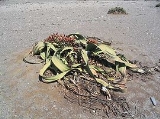
Spermatophyte
Overview
Plant
Plants are living organisms belonging to the kingdom Plantae. Precise definitions of the kingdom vary, but as the term is used here, plants include familiar organisms such as trees, flowers, herbs, bushes, grasses, vines, ferns, mosses, and green algae. The group is also called green plants or...
s that produce seed
Seed
A seed is a small embryonic plant enclosed in a covering called the seed coat, usually with some stored food. It is the product of the ripened ovule of gymnosperm and angiosperm plants which occurs after fertilization and some growth within the mother plant...
s. They are a subset of the embryophyte
Embryophyte
The land plants or embryophytes, more formally Embryophyta or Metaphyta, are the most familiar group of plants. They are called 'land plants' because they live primarily in terrestrial habitats, in contrast with the related green algae that are primarily aquatic. The embryophytes include trees,...
s or land plants. The living spermatophytes form five groups:
- cycadCycadCycads are seed plants typically characterized by a stout and woody trunk with a crown of large, hard and stiff, evergreen leaves. They usually have pinnate leaves. The individual plants are either all male or all female . Cycads vary in size from having a trunk that is only a few centimeters...
s, a subtropical and tropical group of plants with a large crown of compound leaves and a stout trunk, - GinkgoGinkgoGinkgo , also spelled gingko and known as the Maidenhair Tree, is a unique species of tree with no close living relatives...
, a single living species of treeTreeA tree is a perennial woody plant. It is most often defined as a woody plant that has many secondary branches supported clear of the ground on a single main stem or trunk with clear apical dominance. A minimum height specification at maturity is cited by some authors, varying from 3 m to...
, - conifers, cone-bearing trees and shrubShrubA shrub or bush is distinguished from a tree by its multiple stems and shorter height, usually under 5–6 m tall. A large number of plants may become either shrubs or trees, depending on the growing conditions they experience...
s, - gnetophytes, woody plantWoody plantA woody plant is a plant that uses wood as its structural tissue. These are typically perennial plants whose stems and larger roots are reinforced with wood produced adjacent to the vascular tissues. The main stem, larger branches, and roots of these plants are usually covered by a layer of...
s in the genera GnetumGnetumGnetum is a genus of about 30-35 species of gymnosperms, the sole genus in the family Gnetaceae and order Gnetales. They are tropical evergreen trees, shrubs and lianas. Unlike other gymnosperms they possess vessel elements in the xylem...
, WelwitschiaWelwitschiaWelwitschia is a monotypic genus of gymnosperm plant, composed solely of the very distinct Welwitschia mirabilis. The plant is commonly simply known as Welwitschia in English. It is known locally as !kharos or khurub , tweeblaarkanniedood , nyanka , or onyanga , among others...
, and EphedraEphedra (genus)Ephedra is a genus of gymnosperm shrubs, the only genus in its family, Ephedraceae, and order, Ephedrales. Ephedra grows in dry climates over wide areas of the northern hemisphere, including southwestern North America, Europe, north Africa, and southwest and central Asia, and, in the southern...
, and - angiosperms, the flowering plants, a large group including many familiar plants in a wide variety of habitats.
In addition to the taxa listed above, the fossil record contains evidence of many extinct taxa of seed plants.
Unanswered Questions
Discussions

